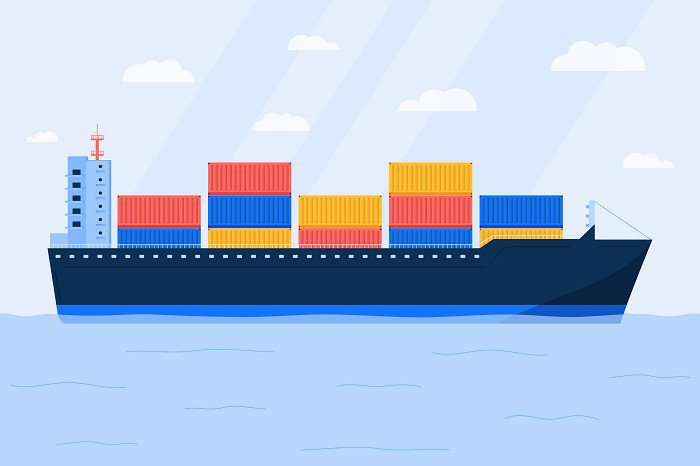
The function of Non-Vessel Operating Common Carriers (NVOCCs) has become increasingly important in the dynamic world of international trade and logistics. By bridging the gap between shippers and ocean carriers, NVOCCs are essential in container shipping.
The functions of NVOCCs and their crucial position in the international container shipping industry are covered in depth in this article.
Understanding NVOCCs: Unpacking the Acronym
Understanding the acronym itself is crucial to understanding the significance of NVOCCs. Non-Vessel Operating Common Carriers are middlemen in the shipping business who make transporting goods between producers or shippers and ocean carriers easier. NVOCCs do not own ships, unlike traditional ocean carriers, who own and manage their fleet. They instead concentrate on consolidating containerized cargo, reserving space on ships, and offering added value services to their customers.
The Functions of NVOCCs
The container shipping process is streamlined by NVOCCs, who carry out a variety of tasks that increase productivity and lower complexity. Let's delve into their primary functions:
Cargo Consolidation and Deconsolidation
Consolidating cargo from various shippers into full container loads (FCL) to reduce costs is one of NVOCCs' main responsibilities. The goods are then distributed to consignees after consolidating containers at the destination port. This process of consolidation and deconsolidation maximizes the use of container space, lowering shipping costs for individual shippers who might require additional cargo to fill a container.
Booking and Container Space Management
When reserving container space on ships, NVOCCs are intermediaries between shippers and ocean carriers. They use their partnerships and relationships with numerous carriers to obtain competitive rates and convenient shipping schedules. Effective container space management guarantees on-time cargo delivery, satisfying customer needs, and maintaining the flexibility of the supply chain.
Documentation and Compliance
Shippers may need help navigating the complex web of international shipping laws and paperwork. NVOCCs help ensure all required paperwork, such as bills of lading, customs declarations, and certificates of origin, is properly prepared and filed. Compliance with these regulations is essential for the supply chain to run smoothly without delays, fines, or disruptions.
Freight Negotiations and Rate Procurement
NVOCCs are highly knowledgeable about market trends and ocean freight rates. Due to the quantity of shipments, they can negotiate favorable rates with ocean carriers. This makes it possible for smaller shippers to obtain competitive pricing that they might not have been able to do on their own. NVOCCs can combine shipments from different clients, giving them leverage in negotiations.
Value-Added Services
NVOCCs frequently provide extra services that complement the core ones to improve the shipping experience as a whole. Cargo insurance, warehousing, customs clearance, and track-and-trace capabilities are a few of the services that may be offered. NVOCCs streamline the end-to-end shipping process, making it more effective and less onerous for shippers by offering a full range of services.
The Role of NVOCCs in Container Shipping
It is impossible to overstate the importance of NVOCCs in the container shipping sector. Take a closer look at their function below:
Filling Market Gaps
By catering to shippers who might need more cargo to secure favorable shipping terms, NVOCCs close a significant gap in the market. These smaller shippers frequently gain from NVOCCs' proficiency in contract negotiations, container space management, and paperwork, allowing them to compete globally.
Flexibility and Adaptability
The ability to adapt is essential in the quick-paced world of international trade. By offering a variety of shipping options across various carriers and routes, NVOCCs provide flexibility. With such flexibility, shippers are guaranteed to be able to select the best option based on their unique needs, whether they are focused on speed, cost-effectiveness, or a combination of the two.
Risk Mitigation
NVOCCs are essential to shippers' efforts to reduce risk. By providing cargo insurance, they add another level of security against unforeseen occurrences like accidents, theft, or natural disasters while the shipment is in transit. This eased shippers' concerns and improved the shipping process' overall dependability.
Documentation Accuracy
In international shipping, accurate documentation is crucial to avoid complications and delays at customs. Because of their experience managing various documentation requirements, NVOCCs guarantee that shippers' cargo moves across borders without hiccup, saving money and reducing non-compliance risk.
Conclusion
Non-Vessel Operating Common Carriers (NVOCCs) have become key players in the complex web of international trade. They perform various tasks, including managing documents, negotiating rates, providing value-added services, and consolidating cargo. NVOCCs serve as a middleman between ocean carriers and shippers, bringing efficiency, adaptability, and knowledge to the container shipping process.
They aid in democratizing international trade by bridging the gap between small and large shippers, facilitating access for companies of all sizes. The importance of NVOCCs in creating a seamless, interconnected global economy continues to grow as the face of international trade changes.





 Get instant quote
and compare offers in real time
Get instant quote
and compare offers in real time